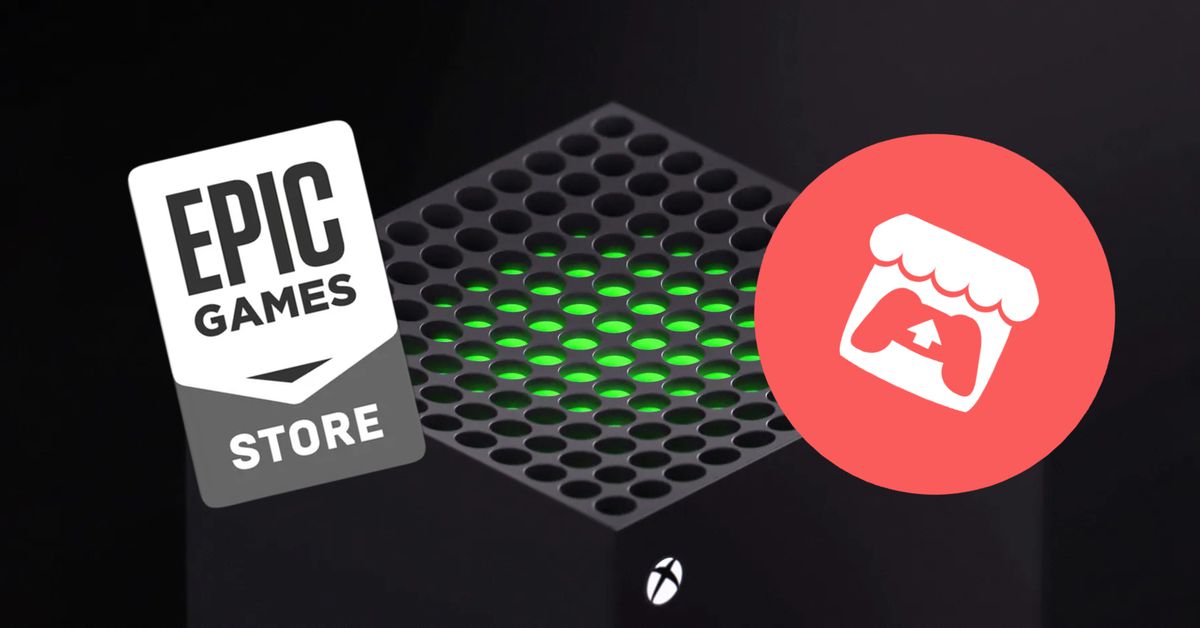Phil Spencer doesn’t just want Xbox games on other consoles. He wants other video game retailers on Xbox, too.
In an interview with Microsoft’s CEO of Gaming during the annual Game Developers Conference, Spencer told Polygon about the ways he’d like to break down the walled gardens that have historically limited players to making purchases through the first-party stores tied to each console. Or, in layperson terms, why you should be able to buy games from other stores on Xbox — not just the official storefront.
Spencer mentioned his frustrations with closed ecosystems, so we asked for clarity. Could he really see a future where stores like Itch.io and Epic Games Store existed on Xbox? Was it just a matter of figuring out mountains of paperwork to get there?
“Yes,” said Spencer. “[Consider] our history as the Windows company. Nobody would blink twice if I said, ‘Hey, when you’re using a PC, you get to decide the type of experience you have [by picking where to buy games]. There’s real value in that.” Spencer believes console players would benefit from that freedom too — and so would console makers like Microsoft.
Spencer explained how, in the past, console makers would typically subsidize the cost of expensive hardware, knowing that a portion of every dollar spent on games for the platform over the years would eventually make it back to the console maker. Then, in time, the console maker would recoup the subsidy — and hopefully more.
Photo: Henry Hargreaves for Polygon
But, Spencer said, “Moore’s Law has slowed down. The price of the components of a console aren’t coming down as fast as they have in previous generations.” Worse, he explained, the console market isn’t growing, with more gamers moving to PC and handheld options. Now, the notion of subsidizing a console — and forcing players to purchase games through the official storefront to help recoup costs — might not make sense. The walls meant to lock people into consoles might be motivating them to stay out.
“[Subsidizing hardware] becomes more challenging in today’s world,” Spencer said. “And I will say, and this may seem too altruistic, I don’t know that it’s growing the industry. So I think, what are the barriers? What are the things that create friction in today’s world for creators and players? And how can we be part of opening up that model?”
The answer, in part, is scrapping exclusivity on more and more Xbox games. Spencer explained that the game experience is hindered when it matters what consoles we play on or what shops sell us our games. As an example, he pointed to Sea of Thieves. A player, he explained, shouldn’t have to worry about what hardware they or their friends own. They should just know if their friends have and want to play Sea of Thieves.
Now, Spencer said, “if I want to play on a gaming PC, then I feel like I’m more a continuous part of a gaming ecosystem as a whole. As opposed to [on console], my gaming is kind of sharded — to use a gaming term — based on these different closed ecosystems that I have to play across.”
:no_upscale()/cdn.vox-cdn.com/uploads/chorus_asset/file/21866439/Xbox_Series_S.jpg)
Image: Microsoft
Spencer’s view sounds reasonable on paper. The console market is flat. The PC market is growing in part because it gives players a choice in where they buy games. So, if consoles want to bring players back, they’ll need to be more like PCs. And that means bringing down the walled gardens that, for decades, have protected the financial model of game consoles.
If Spencer wants to make that vision a reality, then it’s reasonable that we could one day boot up our Xboxes and see Epic Games Store, Itch.io, and other shops waiting to sell us games — and hopefully competing with one another to bring players the best possible deals.


